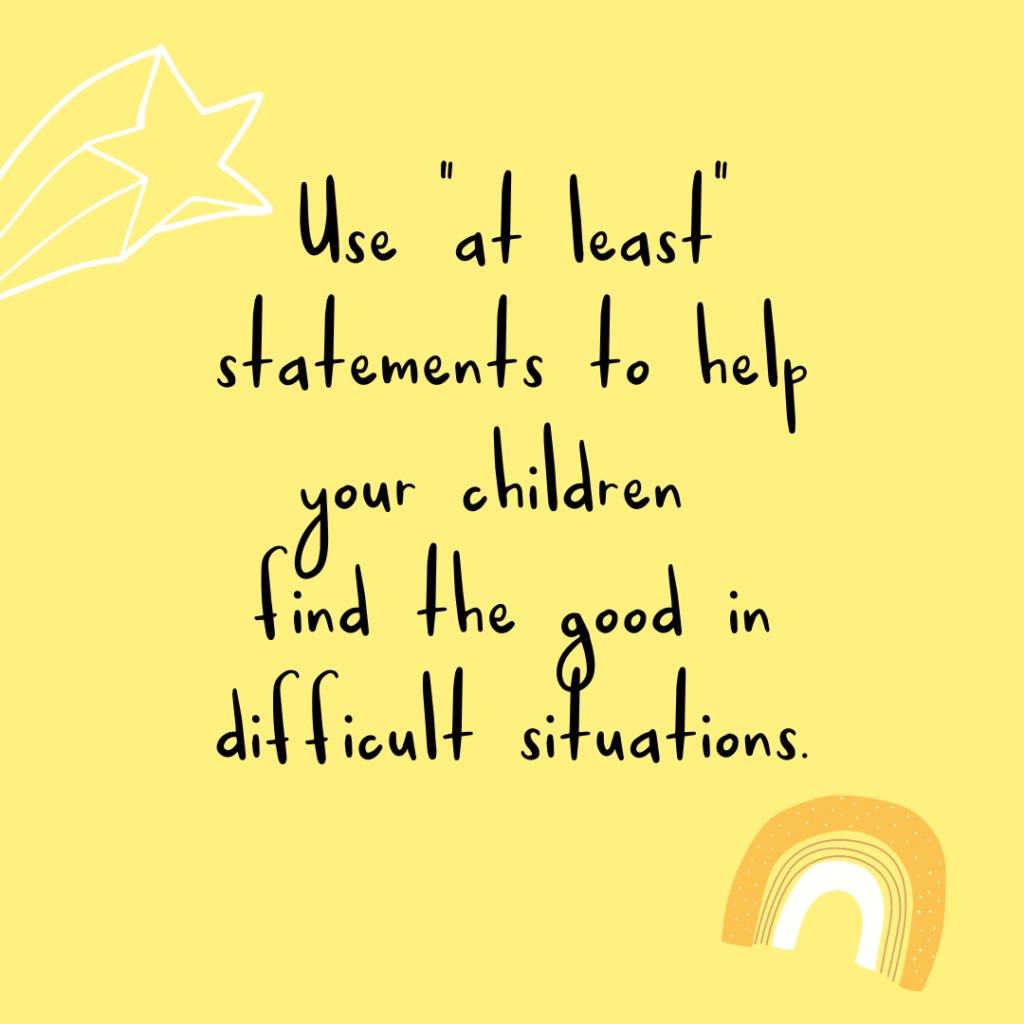Resilience is officially defined as “the capacity to recover quickly from difficulties.” For kids though, you can teach them to, “find the good in difficult situations.” This is such an important value for them to learn because being able to pick themselves up when life gets them down is extremely important for a healthy and happy life.
Studies show resilience is important to teach for a child’s mental health because resilient children experience less stress and are better equipped to deal with life’s problems. Additionally, building resilience early helps reduce the chances of children suffering from stress-related disorders in the future. Resilient children are good at solving problems and learning new skills because they’re more willing to try new things even if they’re not good at them the first time.
So, today I’m going to teach you two simple words you can use with your kiddos to help them reframe disappointment and learn to be resilient – “at least.” These two little words can make a person see the glass as half-full, find the silver lining, and look for a glimmer of gratitude amid utter disappointment.

The first step is to model resilience by using “at least” as an example when telling them about something bad that may have happened in your day. For example, “The car broke down, but at least the repair isn’t very expensive.”
You can then use “at least” statements when talking to them about upsetting events in their lives. You can give them examples of finding the good. For example:
- I’m so sorry that you can’t go to Peter’s birthday party, but at least you have a wonderful friend who you will get to celebrate with as soon as it’s safe.
- You wanted cheese pizza for dinner, but we’re having chicken. At least you get to eat a nice, healthy meal.
Let your child know you understand it’s hard, but being resilient and finding something good even when they’re not feeling good is very important in life. Doing this repeatedly will help your children make resilience a habit. In just two words you can teach them an incredibly important tool for their mental health that they can use now and for the rest of their lives.
Until next time, keep raising extraordinary kids,
Angelique
